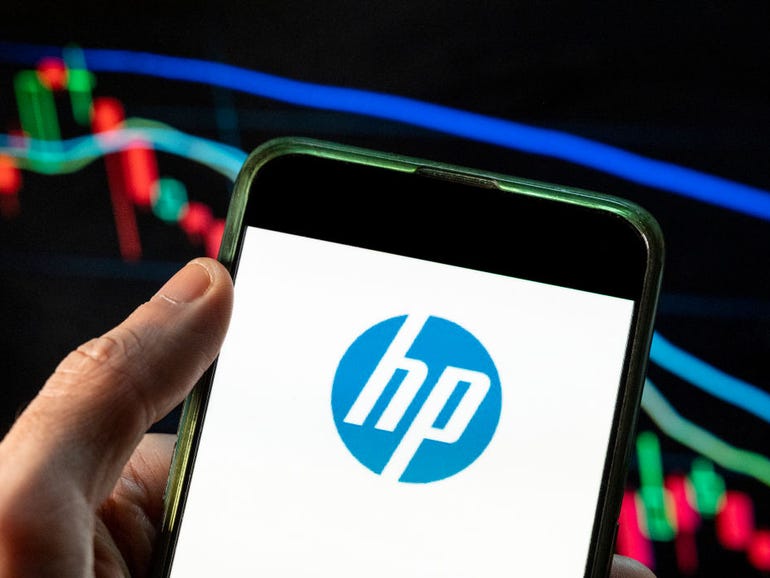How to save money when traveling abroad
High Rock Beach, Grand Bahama Jason Perlow/ZDNet
Now that many countries are opening up their borders to travelers again, some of us are resuming our vacation schedules and are booking work trips.
As the cost of living rises, so has the general price of everything from fuel to clothing, potentially making travel abroad more expensive. As every dollar counts, we shouldn’t forget the additional expenses that leaving our home countries can result in: using our debit or credit cards to pay for a meal, using our current bank accounts to make a withdrawal, the commission tacked on to currency conversion rates, or hotel charges — to name but a few.
After sorting out your flights, hotels, and insurance, you shouldn’t forget there are financial services out there that can offer better deals on spending while you’re away from home. Here’s what to consider:
What extra charges can I expect when I travel abroad?
I’ve just booked my first holiday in three years, and I’ve noted a substantial rise in the overall cost of my booking. I intend to visit two Canadian cities, and this also involves a domestic hop across the country. But hotel prices, added charges for “premium services” (such as plane seat choices) and car rentals are all higher than I’ve expected.
Granted, I’ve chosen a busy summer period, and demand for travel might be outstripping supply. But I’d still caution vacationers to expect a higher bill across the board in comparison to the pre-pandemic prices of 2019.
On your next trip abroad, you may come across expenditures including:
Bank charges
Your bank may charge you for purchases outside of your home country, as well as for any services or subscriptions purchased from overseas vendors.
What you can do
When a bank receives withdrawal requests or transactions issued by a foreign bank, it will often impose a service fee. You may also be charged a fee every time you make a withdrawal from a foreign ATM.
Unless you have a bank account that specifically offers low- or no-fee features on international exchanges, you should try to avoid dipping into your home account while traveling — and this is where credit cards come into play.
Credit card charges
Foreign transaction (FX) fees are common charges that will appear on your card when you use it on holiday. These fees, imposed by card issuers and transaction handlers, can range from 1% to 3%.
What you can do
You may want to consider applying for a credit card for travel purposes only.
While your at-home credit card may have great benefits, this doesn’t mean it will work to your benefit abroad. You will want to find a credit card that specifically offers decent rates and fee models for international use.
Our current favorite is the Chase Sapphire Preferred Card, which has no foreign transaction fee and offers points and rewards for dining, hotel booking, and travel purchases (6.24% – 23.24% Variable).
If you aren’t sure where to start the hunt for a travel-friendly credit card, you can read our beginner’s guide here.
High exchange rates and conversion fees
Currency exchangers vary in their buy/sell rates for switching currencies and some will include a commission.
What you can do
The best way to avoid high exchange rates and additional fees is to change up cash at a 0% commission agency or your bank before you travel, or to use a 0% foreign transaction fee credit card as much as possible.
If you are using a card to make a purchase, always pay in the local currency rather than USD or your home (and issuer country) currency. This is because when conversions are made, payment providers and banks will often apply a small fee — and these can add up very quickly.
Avoid currency exchange kiosks in airports, hotels, and popular tourist areas. They will likely slap on high fees, commissions, and give you poor rates.
A note on cash: It’s always useful to have some local currency on you. If you are going to purchase some, you should submit your order at least a week or so before your trip and keep an eye out for the best rates on offer. You can also order currency online through services offered by the likes of Wells Fargo, Chase, Bank of America, and Travelex.
Mobile data and roaming fees
Mobile networks vary from country and country, and many major telecommunications providers, such as Orange or T-Mobile, will ‘piggyback’ on local networks to keep their customers connected. Unless your service package already includes international roaming, you may find that taking phone calls, sending messages, or browsing the internet results in a daily fee.
What you can do
The best way to avoid unexpected roaming charges is to plan ahead. Domestic plans, in the US and beyond, do not usually cover international travel — unless you have opted for an extra service to your existing plan.
- AT&T: AT&T offers customers a day pass for $10, which includes coverage in over 210 destinations and mobile internet access. If you’re making calls to countries outside of the scheme’s scope, however, you will still be charged per minute at a long-distance rate.
- T-Mobile: Magenta, ONE Plan, and Simple Choice contracts include free 2G (yes, 2G) roaming and texts in over 210 countries. Calls are $0.25 per minute. Alternatively, you can pick up an international pass ahead of time for high-speed internet access and unlimited calls.
- Verizon: Verizon offers monthly plans for frequent fliers and passes for shorter trips at $5 – $10 per day. Travel passes cover over 210 countries, and you can also use this international trip planner to decide what service is best for you.
- Comcast Xfinity: Xfinity supports international roaming for over 200 countries. Customers have the choice of pay-as-you-go while abroad, where charges vary depending on the country, or a global travel pass, which is $10/day per line in over 170 countries (or $5/day in Mexico and Canada). Make sure you contact the company to enable international roaming in either case.
Consider local SIM cards: If you are visiting a specific country often, it could be worth purchasing a local SIM card for making calls and surfing the internet. This way, you can top up as you need and will pay local rates rather than roaming charges — but you will need an unlocked phone.
Medical costs
If you end up having an accident or illness abroad, there may be medical and hospital fees to pay. The amount owed will depend on whether or not you have insurance, a health card, and which country you are visiting.
What you can do
If you want to avoid potentially costly medical bills abroad, you need to prepare. I consider travel healthcare insurance essential. Coverage of up to millions of dollars can be purchased, including repatriation and treatment. It should be noted that domestic insurance will usually not cover trips abroad.
UK travelers should apply for their free UK Global Health Insurance Card (GHIC) for free or subsidized healthcare in Europe, Norway, Iceland, Liechtenstein, or Switzerland.
Service charges and tourist levies
You may have extra fees tacked on for tours and excursions. Local guides included in a booked activity may also require tips in cash.
What you can do
You aren’t going to be able to escape added taxes, charges, or levies placed on tourists for popular attractions. However, to avoid any nasty surprises, you should check the terms and conditions of any tours or activities you book — and, perhaps, venture outside of the usual tourist hotspots.
Single travel subs and supplements
If you are a single traveler, hotels, excursions, and tourist activities may charge you a subsidy for going solo when prices are based on at least double occupancy.
What you can do
It can be tricky to avoid paying single supplements, but it is not impossible. The first tip is to try and avoid companies that charge solo traveler fees. But if you can’t and really want to go on the activity or tour they offer, you might be able to avoid it by booking early. Last-minute deals, too, can wipe out the supplement if the firm wants to fully book and only has a few spaces left. You might have the best luck in securing waivers off-peak.
Tips
You may be expected to pay a service charge for services at hotels, restaurants, resorts, bars, tours, sports, and excursions.
What you can do
Tip your waiters, bar, and service staff: Especially important in the US and in countries where servers rely on their tips rather than salaries to survive, it’s important to tip if this is culturally accepted — or expected.
In my own travels, I’ve found that providing a tip on the first round, more often than not, means that the staff looks after you (and this can also mean free or discounted drinks and food). In another case, when I tipped the cleaners for my hotel room in Morocco, they were the first to help me source a particular souvenir for the local’s rate, rather than the inflated, extortionate tourist price.
COVID-19 testing
While slowly being phased out in many countries, some might require you to take a COVID-19 test prior to travel. Make sure you check country restrictions before you fly.
Going over budget
It’s far too easy while you’re traveling to overspend and not realize it until you’re back home and looking at your bank statement.
What you can do
To control your costs, you should consider downloading a planner or budget mobile app. These options include:
- TravelSpend: Keep track of your travel expenses, no internet connection required. iOS | Android
- Wallet: An overall useful app for budgeting and expenses. Android
- Splitwise: Useful for groups, this app can be used to track balances, split bills, transfer payments made between friends and family, and organize who is paying for what. Android
Read on: The 5 best international travel credit cards: Globetrotter rewards
Other tips and tricks
Buy travel insurance
Travel insurance is often the last thing we buy, but if the COVID-19 pandemic taught us anything about going abroad, the process should be: flights, hotels, then insurance. Travel insurance can cover you if you are suddenly unable to go, there is a medical emergency, or something else happens that puts your plans on hold.
This can save you from having to pay out for a new trip entirely. If you don’t purchase travel insurance beforehand, this can cost you dearly.
Download digital files in advance
If you need files, music playlists, films, or games to keep you occupied, or you want to have local maps stored on your mobile device before landing, make sure you download everything you need before you leave. This can prevent you from paying extra roaming charges.
On this note, something I’m a fan of is downloading audio walking tours before I visit a new city. These can be found for free as mobile downloads and cover thousands of popular cities and attractions.
Insure personal items
You should also make sure any valuable personal items you take with you have their own insurance. As I found to my detriment when I dropped my watch on an airport security check conveyer belt and smashed it, home coverage doesn’t necessarily mean travel coverage for repairs or replacement.
Explore airport parking options
Airport parking can cost you an arm and a leg, especially if you book on the day. Even booking on the morning of a trip can save you money, and the earlier, the better. It can also be worth exploring other options if airport parking is obscenely expensive, such as renting a driveway or parking space nearby through apps including JustPark.
Be flexible on travel dates
In the UK, at least, there is chaos at passport control, as many of the employees who were made redundant during the pandemic have not been replaced. During the summer, you may expect similar disruption at some major airports. If you can, it’s worth traveling at “off-peak” times and dates. Not only will you likely spare yourself the stress of this disruption, but flights will be cheaper.
Save on flights and hotel bookings
Before you book directly with a hotel, run your preferred flights and hotel dates through Google, Cheapflights, Skyscanner, Trivago, and similar services. You can often find third-party sites with discounts. However, a word of warning: type the name of your third-party site and “reviews” into Google first, as some travel companies have poor service records and could end up disrupting your travel plans.
Check frequent customer points
Don’t forget to check your points and air miles. You might be able to slash the price of your next flight, upgrade, or more for free.
Read on: The 6 best airline credit cards: Earn travel points
Eat street food
You don’t always need to eat in restaurants on a trip; check out resources like TripAdvisor for tips on the best places to eat. When I’ve been abroad, I’ve often found street food either matches or rivals restaurant offerings. It’s part of the experience, too.
Watch out for scams
If you’re visiting a new area, make sure you conduct some research on the common scams against tourists. Some of the ones you may encounter include:
- Someone draping a snake or bird on you, allowing you to take a photo, and then demanding money (the same goes for “friendship” bracelets and forcing you to wear items)
- Demands for payment in return for directions
- Fake cops, law enforcement who require “bribes”
- Transport overcharging or failing to give you back the correct change. Stay wary of “broken” meters.




